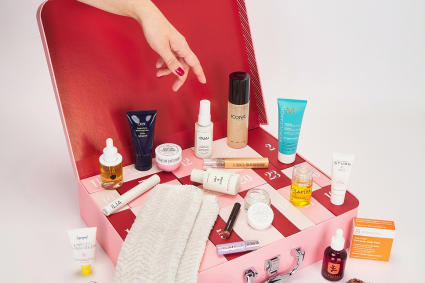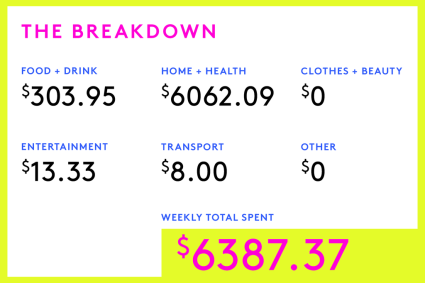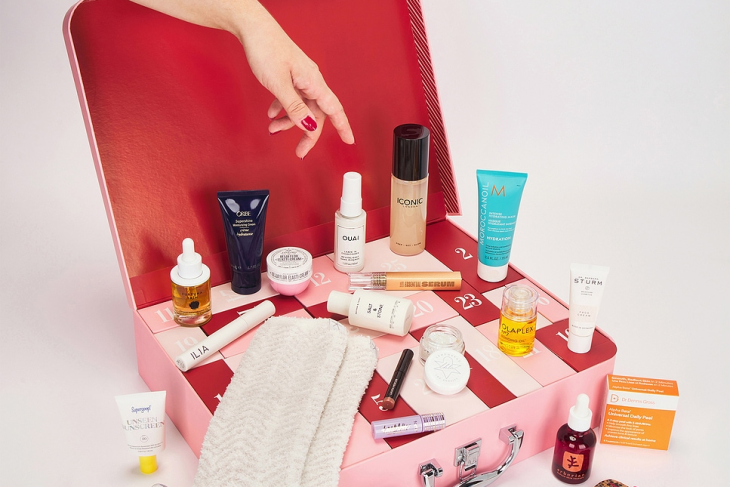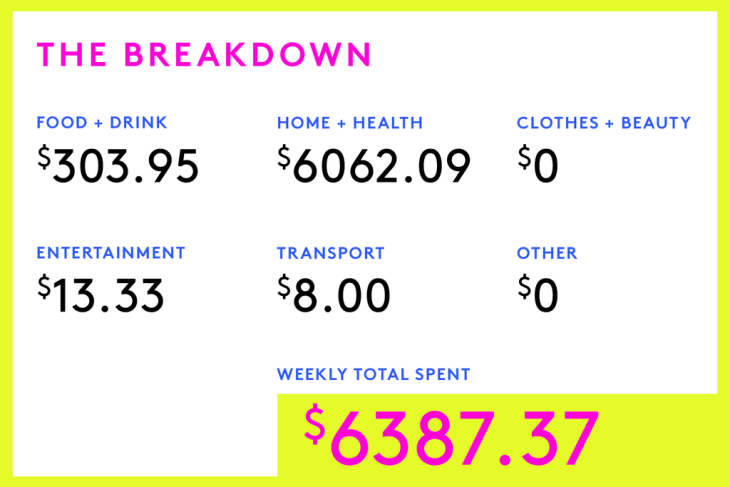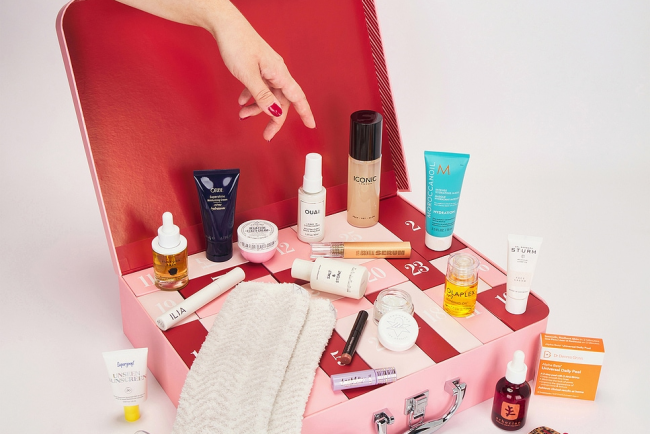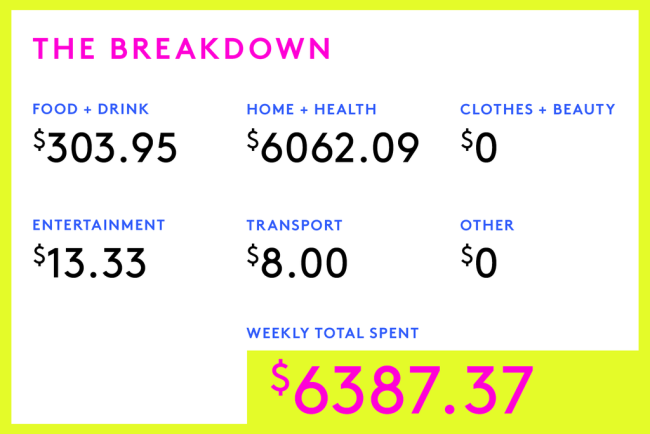

Spoilers ahead. Early into her tenure at Tinder in 2012, Whitney Wolfe Herd (Lily James), later the founder of the woman-focused dating app Bumble, is trying to get her bearings. Day two at her job and newly transplanted from Utah to Los Angeles, she and a co-worker Tisha (played by Industry star Myha’la) go on a murder-themed bus tour of LA. As Wolfe Herd and Tisha talk about being women who are going to take over the then burgeoning tech industry and “run shit”— you know, big plans and ideas — their tour guide alerts them to the next stop on their tour; the story of another young woman who came to LA over 60 years before Wolfe Herd did: The Black Dahlia. As the tour guide notes, Elizabeth Short, also known as The Black Dahlia, came to LA with big dreams, and “instead she ended up mutilated, dismembered and dead in a vacant lot.” Oof.
In a time when we’re reframing just how we view ambitious women who have been maligned, mistreated, and misunderstood… It’s important to note that most of these redemptive arcs have explored the experiences of white women.
It’s a bit on the nose, making the parallel between the horrific murder of a young woman in the 1940s just getting her start and women in tech wanting to fulfill their dreams and find a place of power among the tech bros of the era. But as Swiped, the film from writer and director Rachel Lee Goldenberg reveals, it’s also incredibly accurate.
Starring Cinderella’s Lily James as Wolfe Herd, the movie — set in the early- to mid-2010s — follows the tech founder as she helps revolutionize dating, tracking Wolfe Herd’s experience helping to build the then largest dating app in the world, Tinder, facing sexual harassment, and her eventual ousting and redemption. In 2014, Wolfe Herd sued Tinder, its parent company IAC and sister-firm Match.com, claiming “threatening and abusive behavior” from Tinder’s then-CMO Justin Mateen.
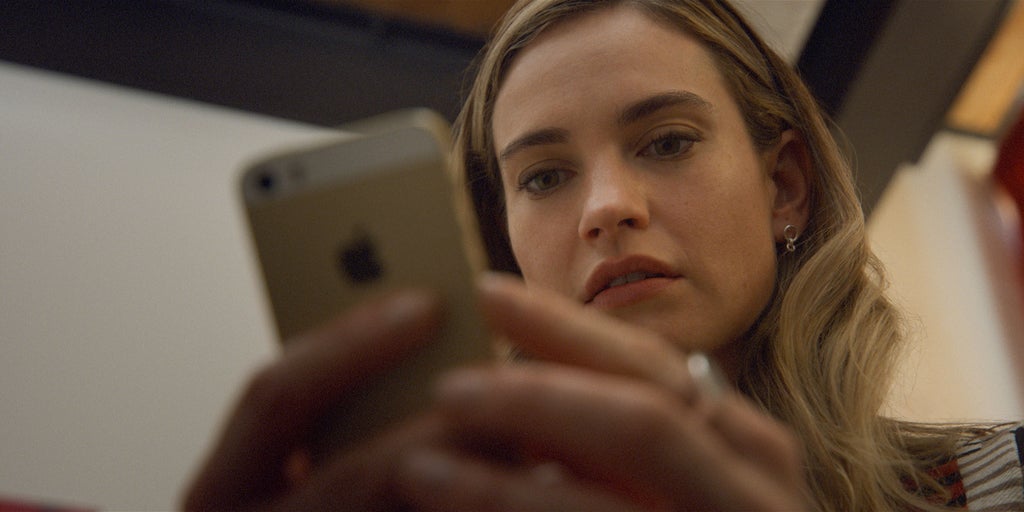
Goldberg’s movie recounts all of this, framing Wolfe Herd as the quintessential girlboss we’ve come to know and become somewhat wary of in that era; one who wears hoodies and blazers to the office, chugs beer at frat parties and jokes around with the boys, yet everyone wants to date, and who subsists on a diet of crappy junk food and Red Bulls, yet somehow has not one blemish on their skin. The movie comes on the heels of other similar movies and series about high-powered women, and in a time when we’re reframing just how we view ambitious women who have been maligned, mistreated, and misunderstood in the past. This has run the gamut from the 2017 Netflix series Girlboss, which chronicled Nasty Gal founder Sophie Amuroso’s start and rise to resale dominance, to Hulu’s 2022 miniseries The Dropout, an intimate and complicated portrayal of Theranos founder Elizabeth Holmes. It’s important to note that, like Wolfe Herd, most of these redemptive arcs have explored the experiences of white women.
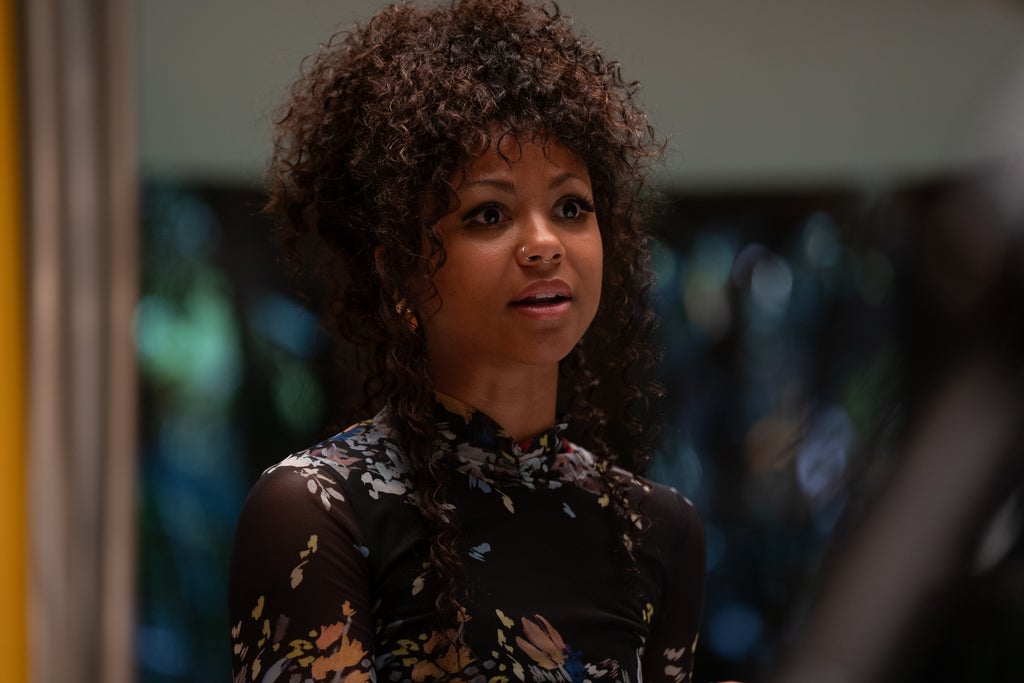
The movie, in many ways, sets Wolfe Herde up in this way to eventually (and thankfully) push back on the idea of the girlboss as a whole. Having left Tinder and facing harassment and mud-slinging from the press in the wake of her lawsuit, a down-on-her-luck Wolfe Herd is confronted by longtime friend Tisha, a Black woman, about her inability to help other women while at the company, despite it being easier for her to ascend to a position of power. The founder has a come-to-Jesus moment, later acknowledging that she bought into the idea of there only being room for one woman at the table, and the fact that she enjoyed being the only woman in the room. It’s a great call-out of the culture at that time, but one that in 2025 feels a little *ahem* dated.
I think things would have been somewhat different for [Whitney] post-Me Too, because even the media was really brutal to her in a way that would have not been quite acceptable now.
writer and director Rachel Lee Goldenberg
On the red carpet at the film’s global premiere at the Toronto International Film Festival (TIFF) earlier this month, filmmaker Goldenberg spoke to Refinery29 about the period of time the film was set in: “Whitney’s story took place pre-MeToo, and I think things would have been somewhat different for her post-Me Too, because even the media was really brutal to her in a way that I think would have not been quite acceptable now.”
Which is true, and also begs the question: when we’re supposedly making progress when it comes to treatment of women in these spaces, and in a time when young people, especially women are becoming disenchanted with dating apps, what can we take from a movie like Swiped?
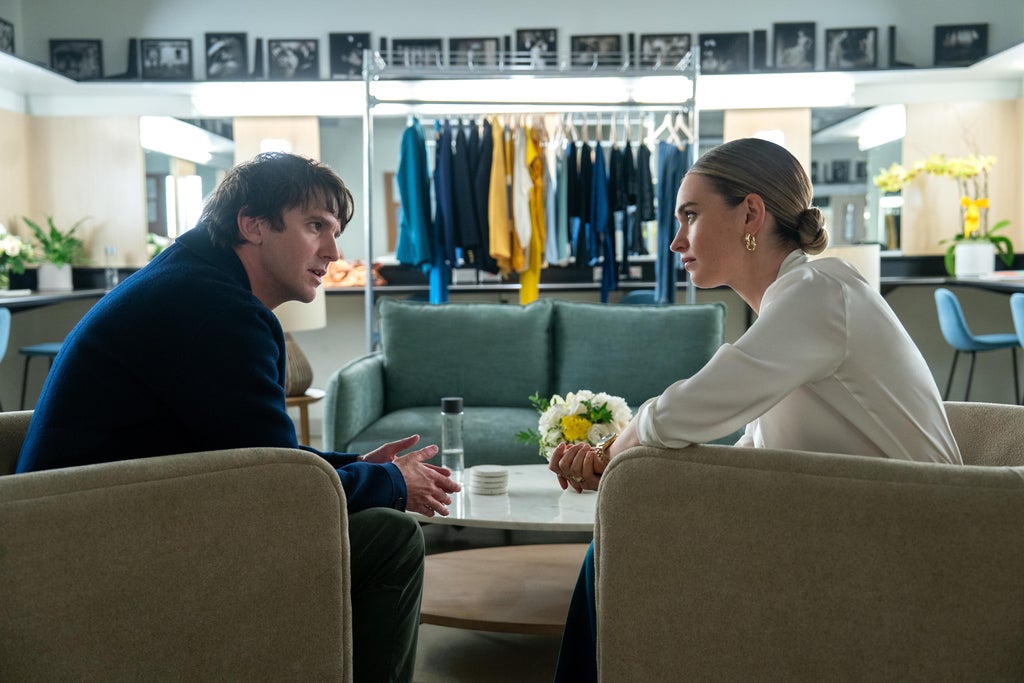
While it’s always enjoyable to watch a woman on-screen succeed and stick it to the man, when Wolfe Herd confronts her male co-founders Sean Rad (Ben Schnetzer) and Justin Mateen (Jackson White) about the rampant harassment women were experiencing on the app, she is told by Rad “we need to be practical, not emotional,” a clear dig at her as a woman, it elicits a gasp and cringe, but is also in many ways not that surprising for the time. Men — especially powerful ones — have been shitty, especially in the early 2010s to young, ambitious and ultimately successful women. This is a fact we know and over a decade later are slowly trying to rectify and atone for. In many ways, the film feels firmly in the past, but that’s until you find out that it really isn’t.
Throughout the movie, you can’t help but wonder whether or not Wolfe Herd herself was consulted on the film, as sometimes happens. She didn’t; a truth that’s revealed at the end of the movie, when audiences learn, just before the credits roll, that a decade later Wolfe Herd is still unable to talk about her experience at Tinder due to an NDA. It’s a final revelation that reframes the movie and Wolfe Herd’s experience in an entirely different light, speaking to the insidious and still longstanding impact of the early tech bro culture and toxicity of that time that Wolfe Herd, and many other young women in tech, faced. Not to mention it emphasizes the need to continue sharing these stories and not become complacent, because it’s still impacting women today.
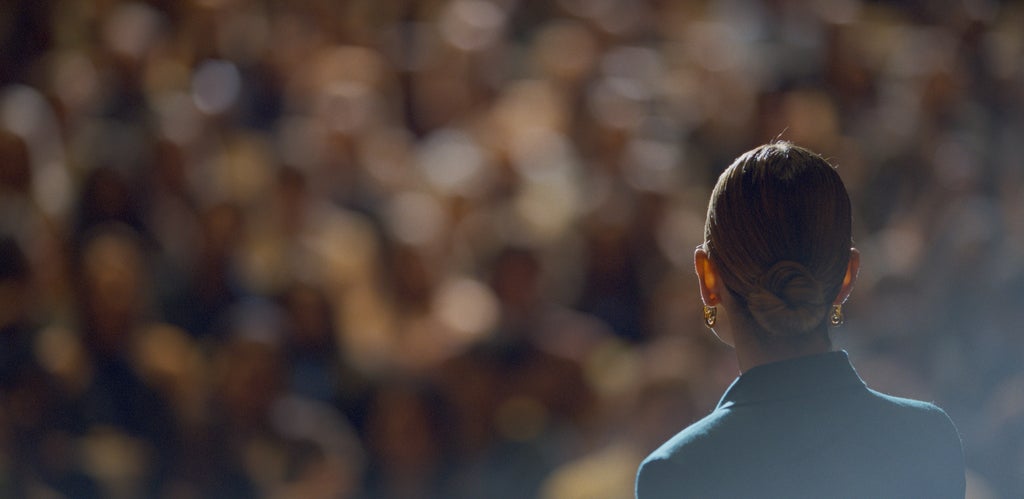
In a way, despite her eventual success outside of Tinder (Wolfe Herd became the youngest self-made woman billionaire in 2021 for a period of 10 months and is worth an estimated $400 million, so take that tech bros!), the founder is still being silenced by the toxic tech culture that allowed her co-founders to mistreat her so terribly and framed her, as the girl who cried wolf.
“It feels like we’ve made baby steps, and it’s like we’re pushing, pushing, pushing, and we’re not even close to where we need to be,” Goldenberg says of the treatment of women in these industries. “What I think is really helpful to take away from Whitney’s story is not that feminism is solved, but more that having courage to speak up and push forward and really follow your moral compass is the path to move culture.”
Swiped is streaming on Hulu starting Friday, September 19.
Like what you see? How about some more R29 goodness, right here?
How Scammers Became Icons Of The Girlboss Era
Girlbosses Were Bad, But Good Bosses Don't Exist
Do Revenge's Drea Torres Ends the Girlboss

